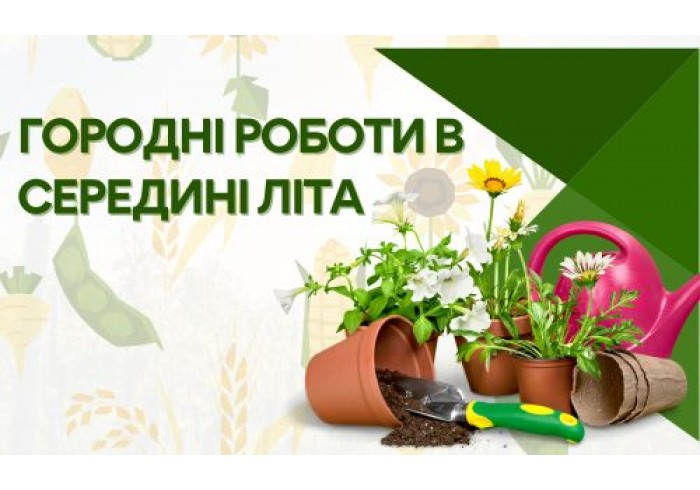Garden work in the middle of summer
The middle of summer is the time when vegetable gardens and gardens require special attention. This is a period of intensive plant care, harvesting, and preparation for the next stages of the agricultural cycle. Farmers, owners of gardens and vegetable gardens, and those who simply love their summer cottages know that the right approach to plant care can significantly affect the quality and quantity of the harvest. Let's look at the key jobs needed in mid-summer to keep your plants thriving and your harvest bountiful.
1. Watering: the basis of healthy plant growth
Summer is a time of intense heat when plants need regular and sufficient watering. Proper watering is critical to maintaining plant health, and productivity.
Morning or evening watering. It is best to water plants early in the morning or late in the evening when the sun is not as intense. This helps reduce water loss through evaporation and reduce the risk of leaf burn.
Drip irrigation. The use of drip irrigation allows you to provide effective, and economical watering, delivering water directly to the roots of plants.
2. Protection from pests and diseases
In the middle of summer, various pests and diseases become active, which can cause serious damage to your plants. It is important to take timely measures to control them.
Regular inspection of plants. Inspect your plants regularly for early signs of pests or diseases. This will allow you to react quickly and apply the necessary protective measures.
Biological methods. Use biological control methods, such as introducing beneficial insects that kill pests.
3. Harvesting: timeliness is the key to success
Midsummer is the harvest time for many crops. It is important to harvest the crop on time to avoid its loss and ensure the best quality products.
Timely collection. Harvest vegetables and fruits when they have reached optimal ripeness. Delay can lead to over-ripening and loss of quality.
Proper storage. Ensure the correct storage conditions for the harvested crop to prolong its freshness and suitability for consumption as much as possible.
4. Plant nutrition: provision of nutrients
In the middle of summer, plants need additional feeding to support active growth and fruit development.
Complex fertilizers. Use complex fertilizers that contain the main macro- and microelements. This will help provide the plants with all the necessary nutrients.
Organic fertilizers. Don't forget organic fertilizers, such as compost or humus, which improve soil structure and promote healthy plant growth.
5. Soil care: preparation for future plantings
In the middle of summer, it is important not only to take care of plants but also to prepare the soil for future plantings.
Soil loosening. Regular fluffing helps retain moisture and promotes better absorption of nutrients.
Mulching. Use mulch to conserve moisture, reduce soil temperature, and control weeds.



